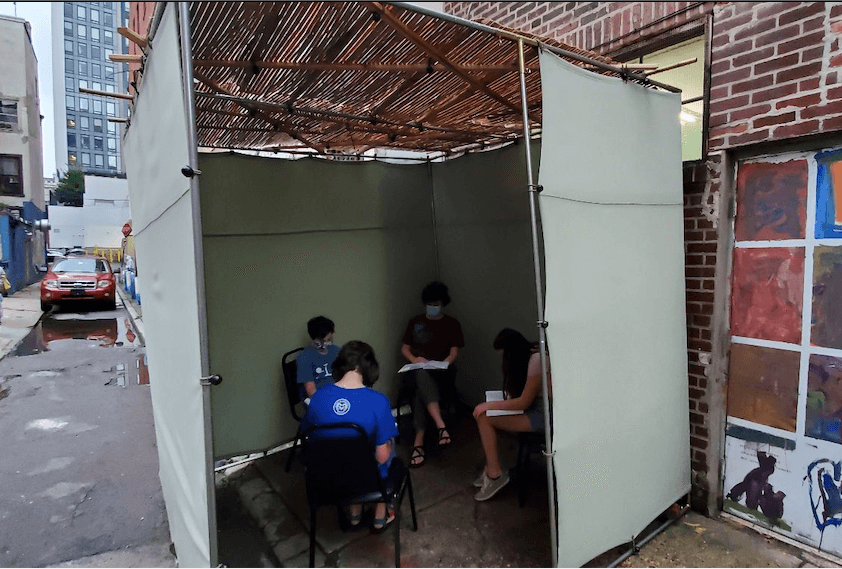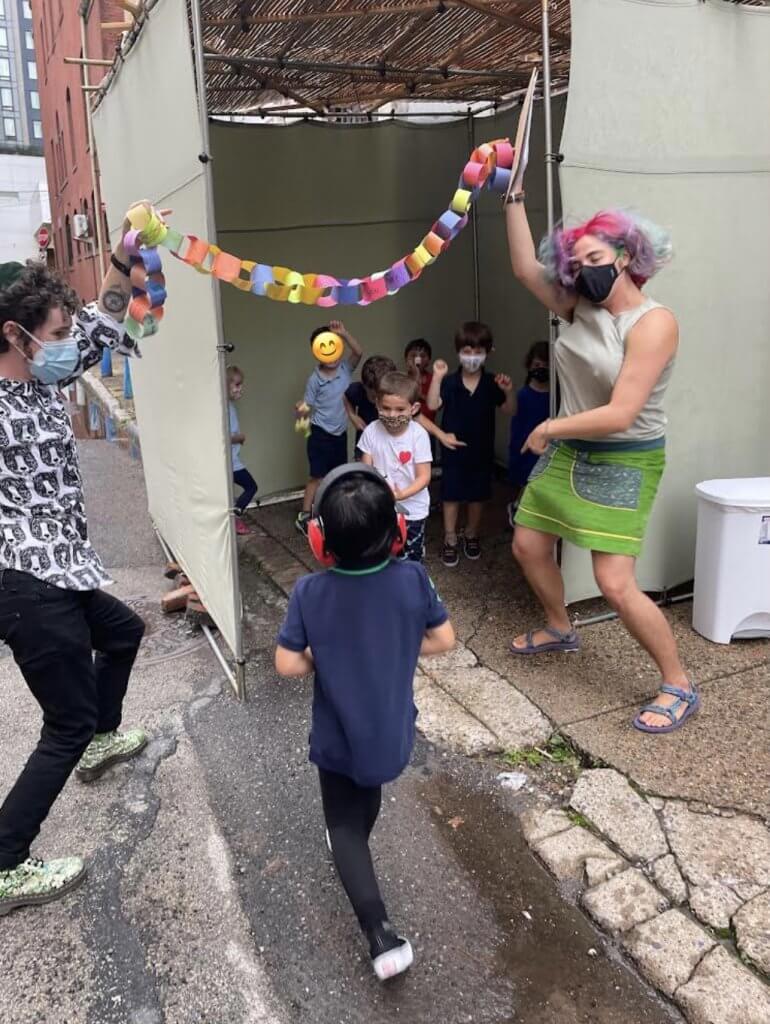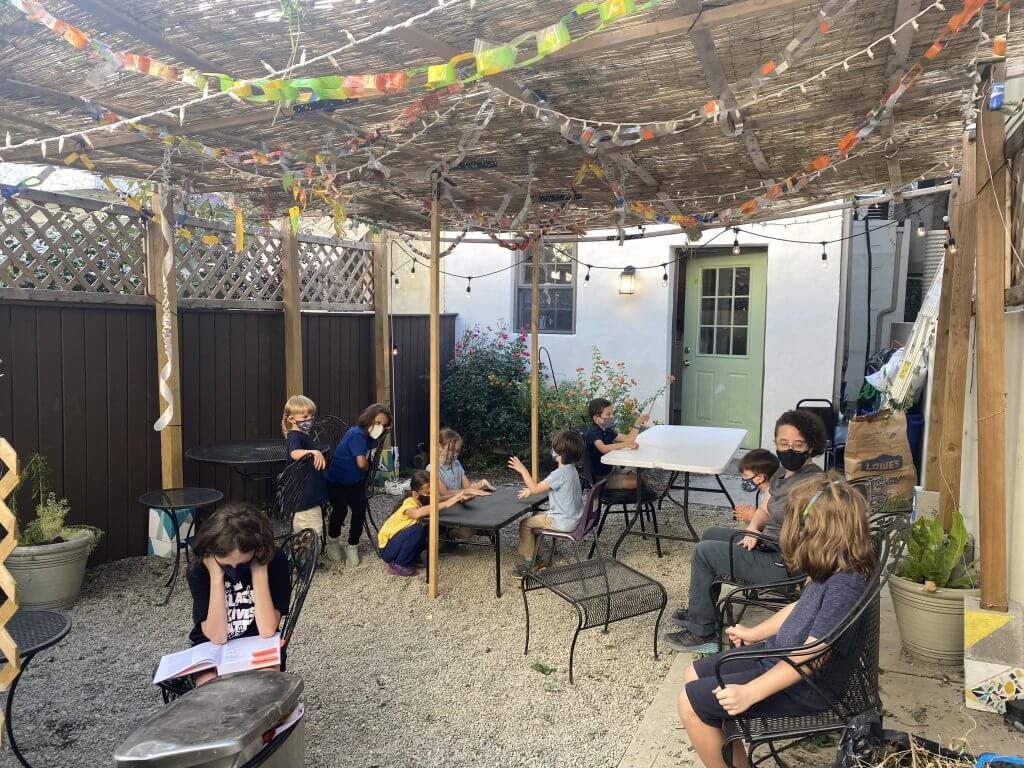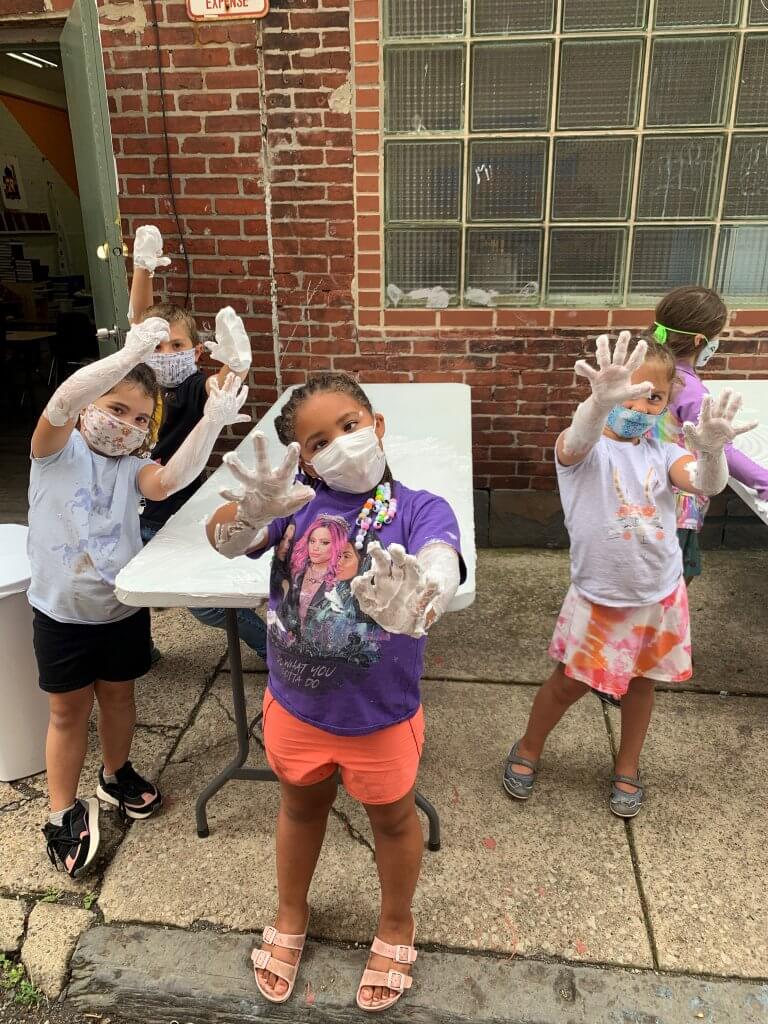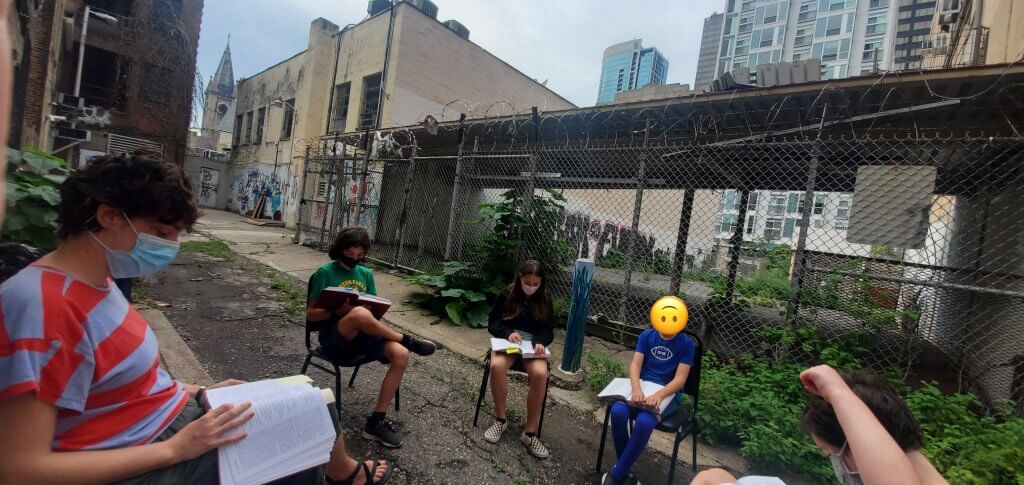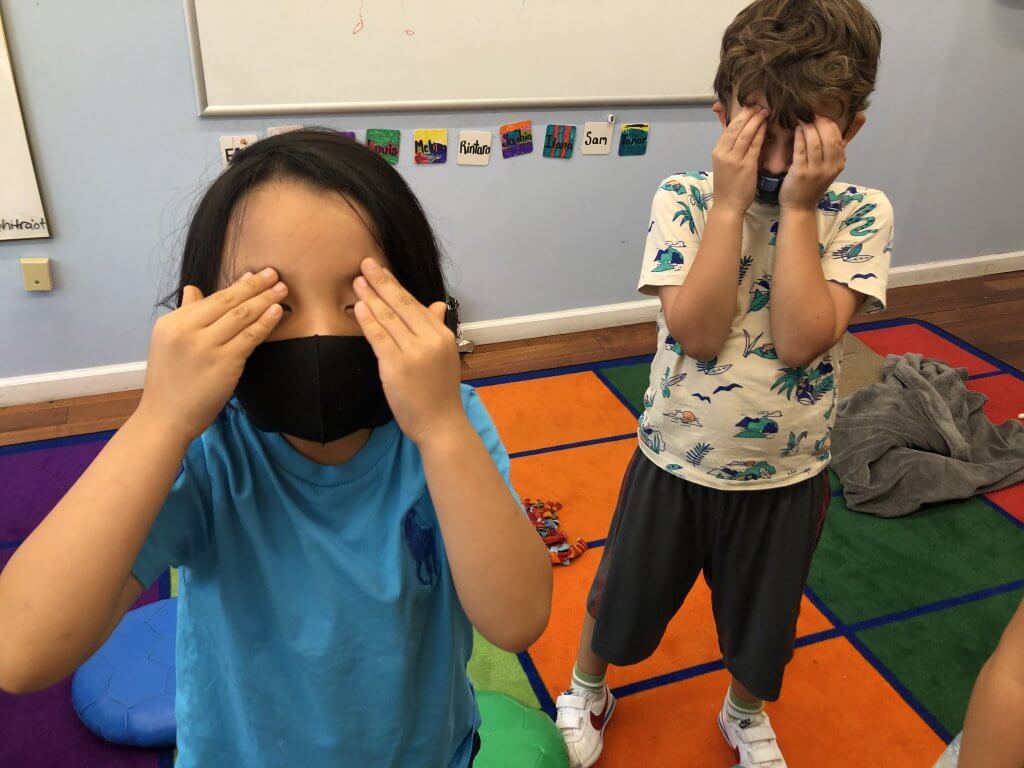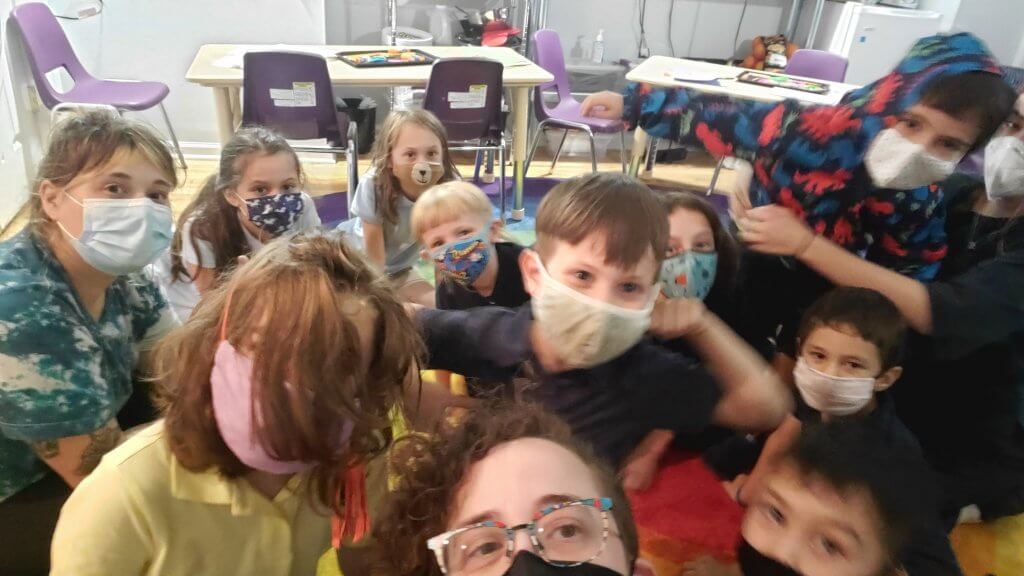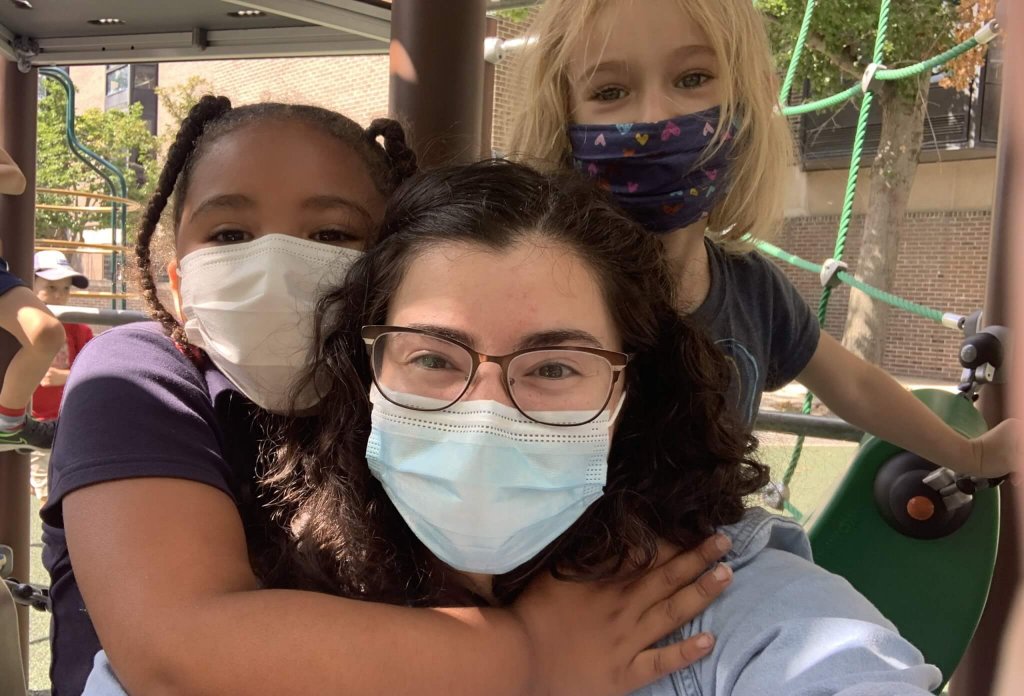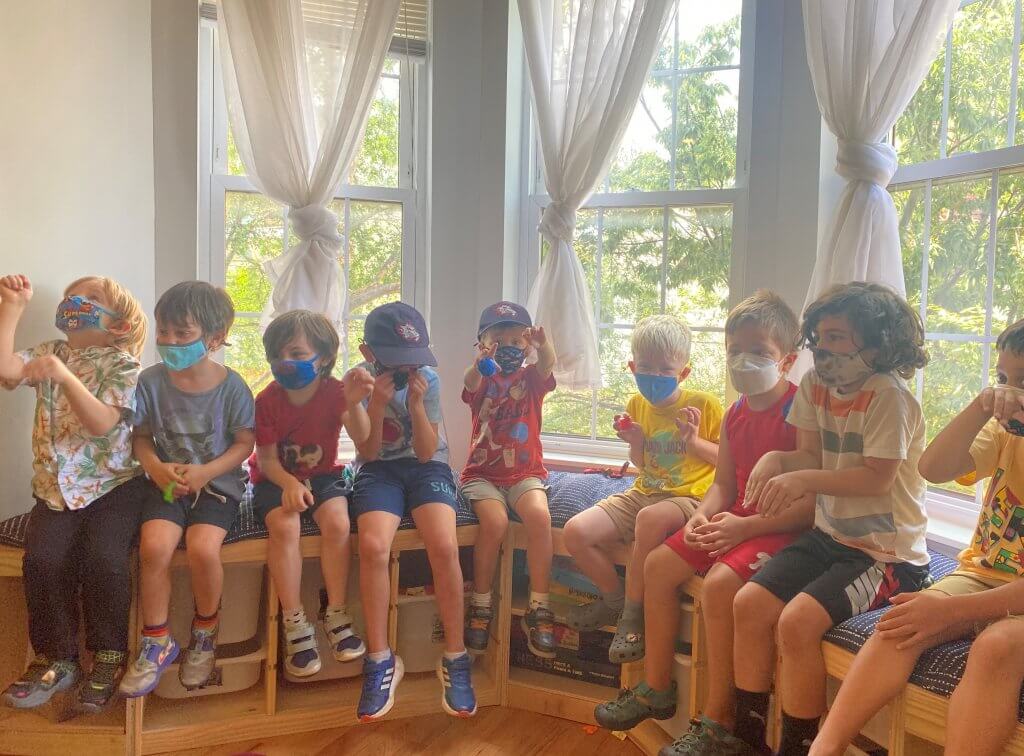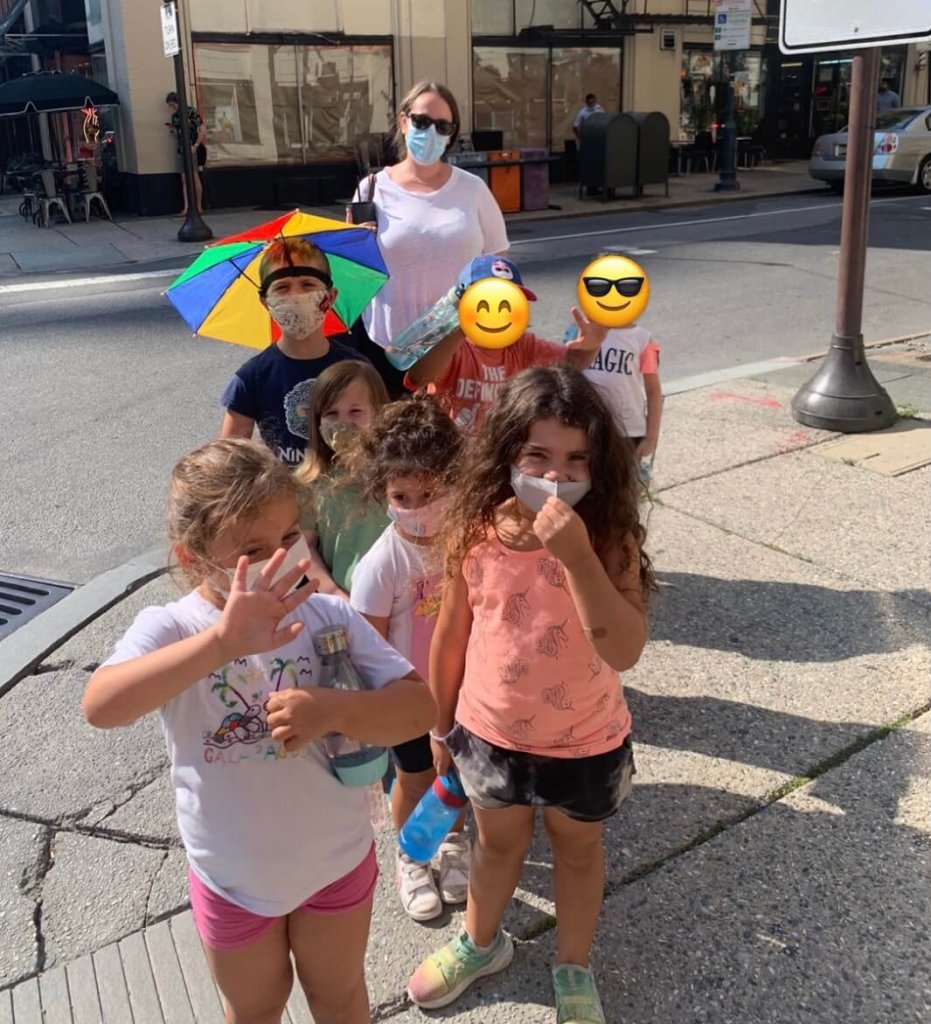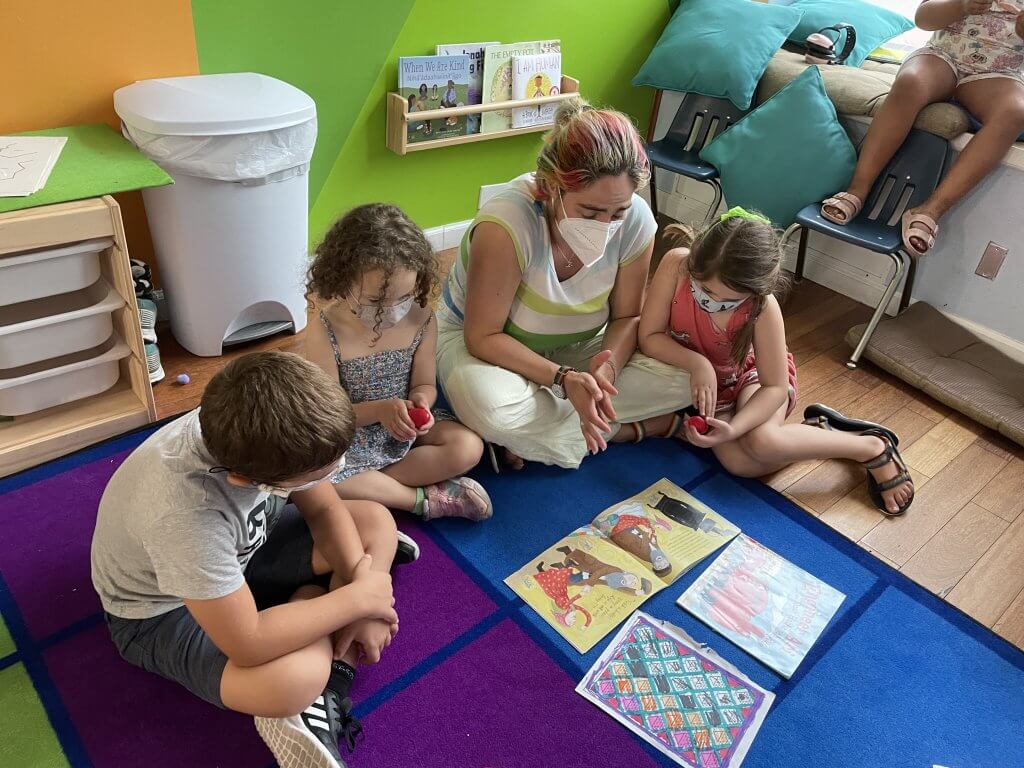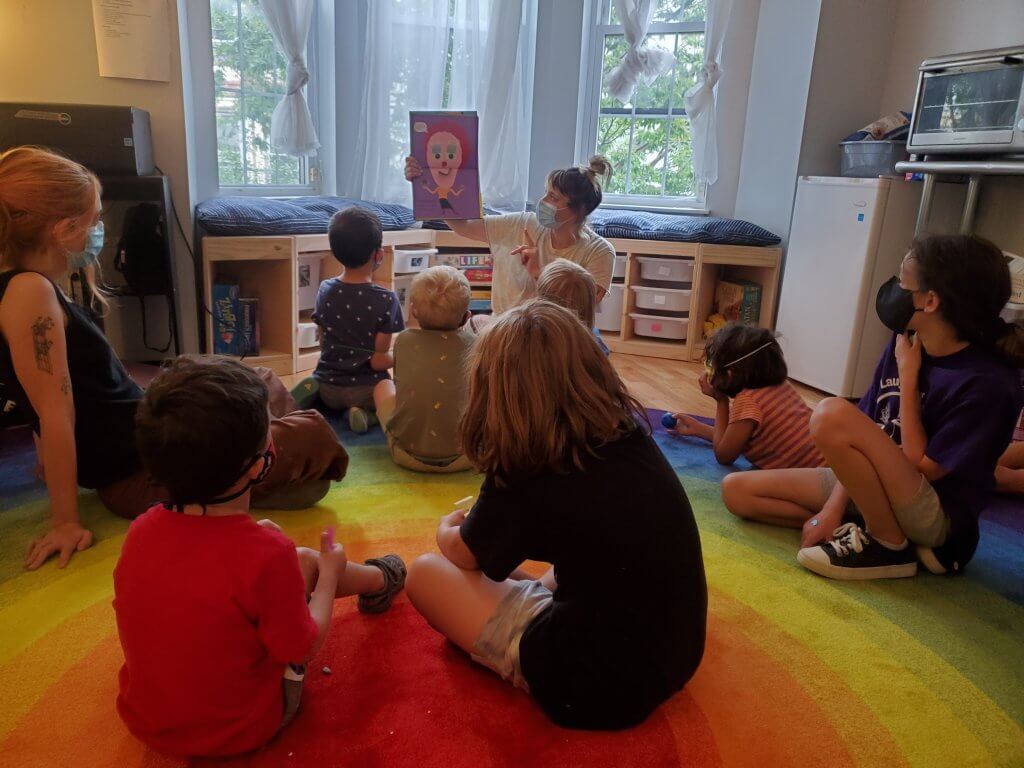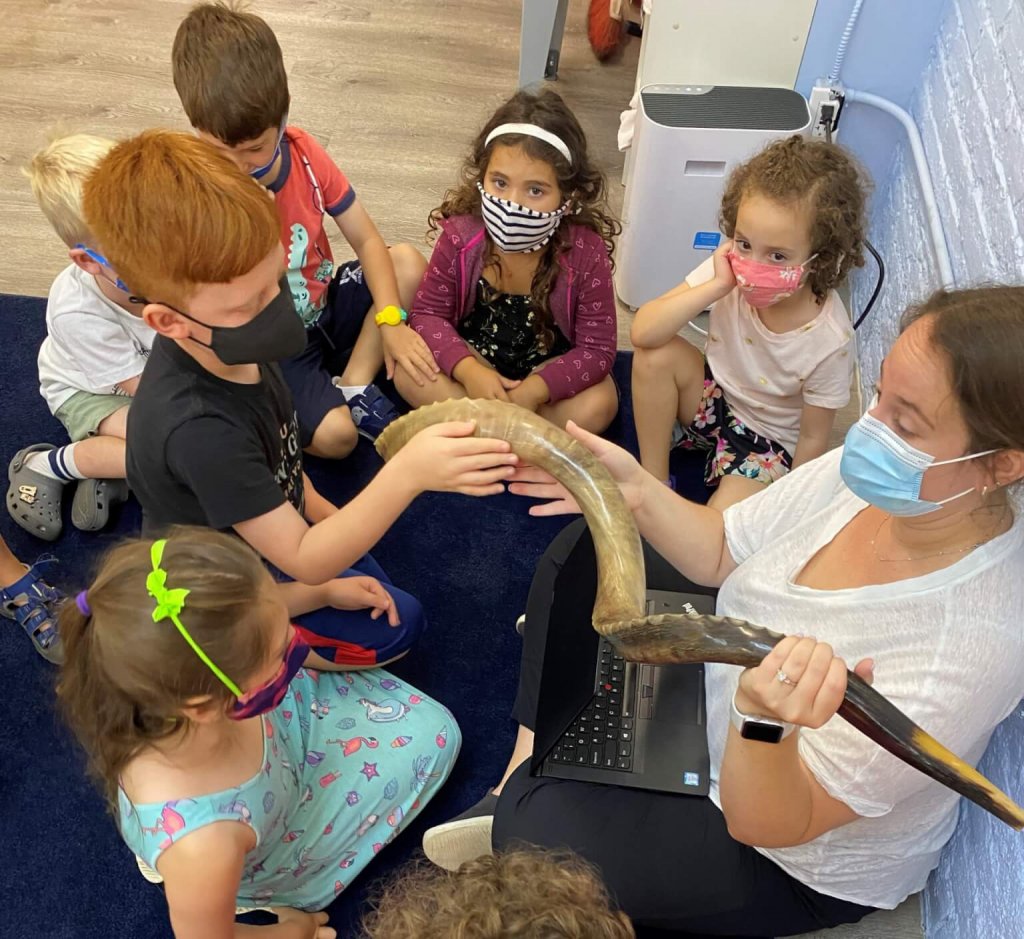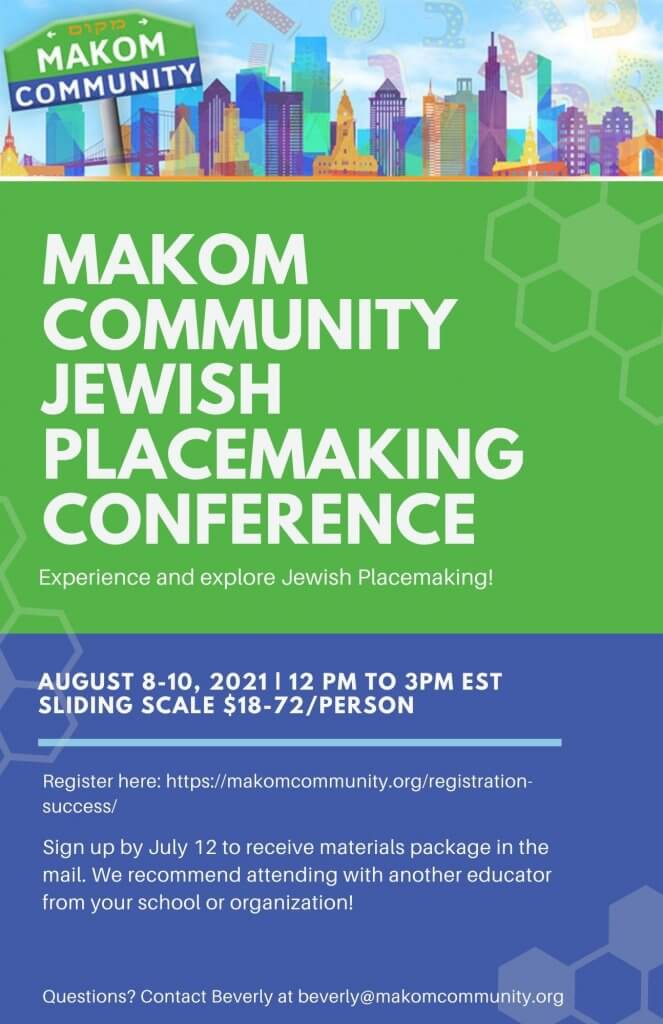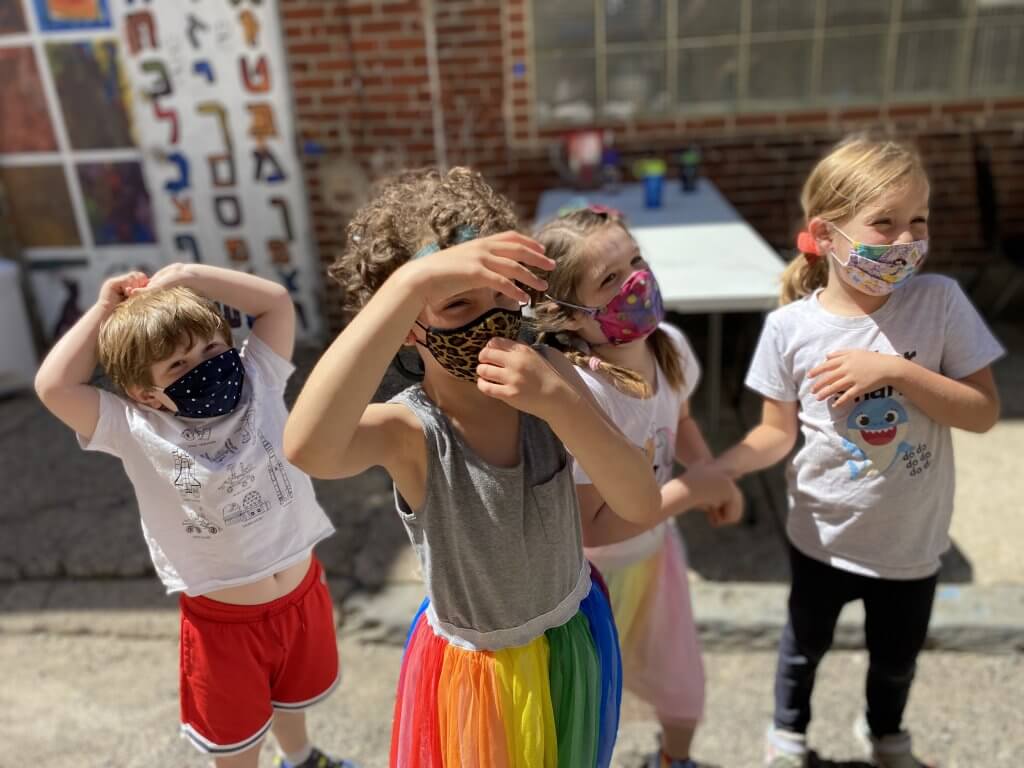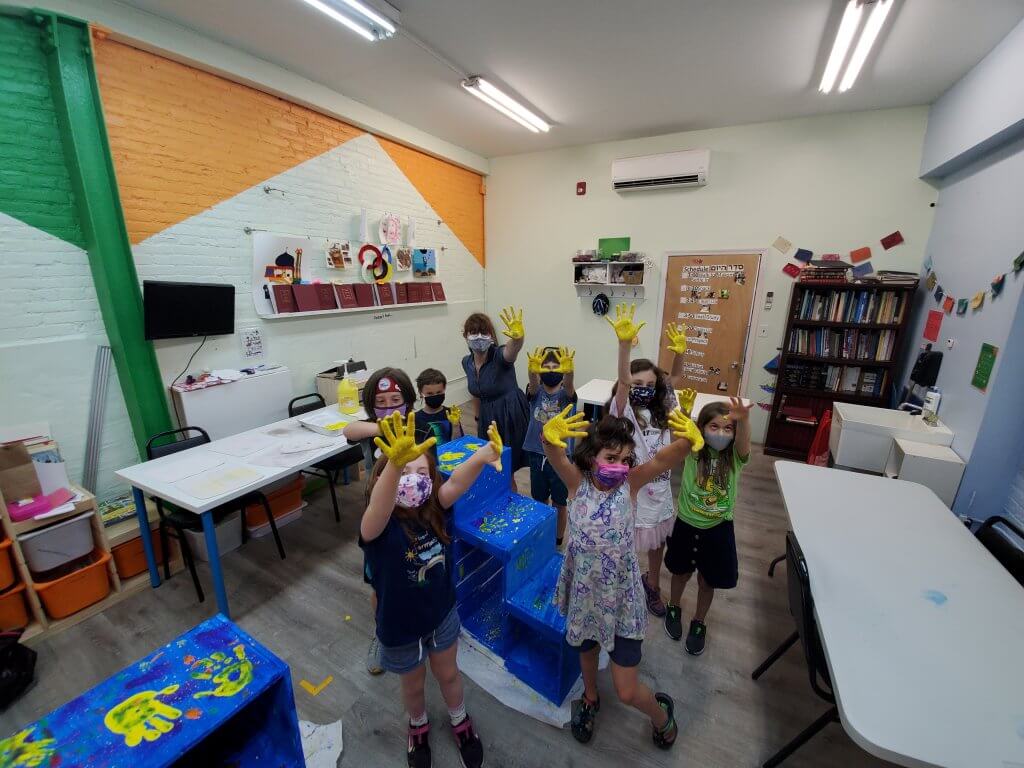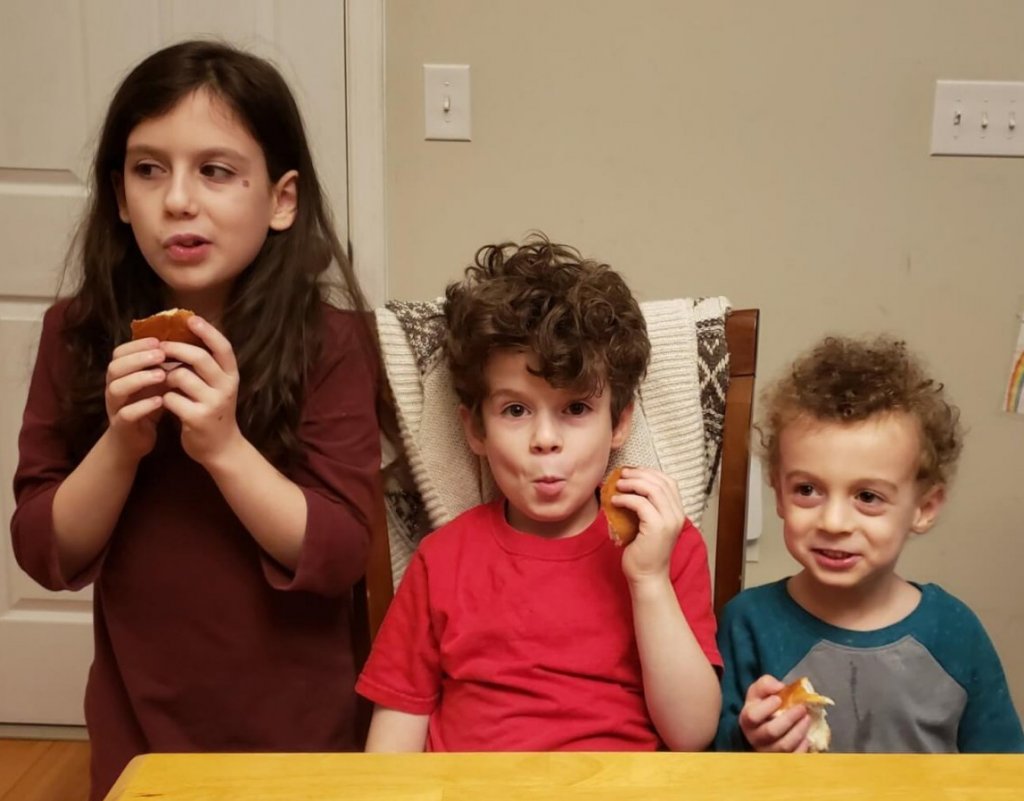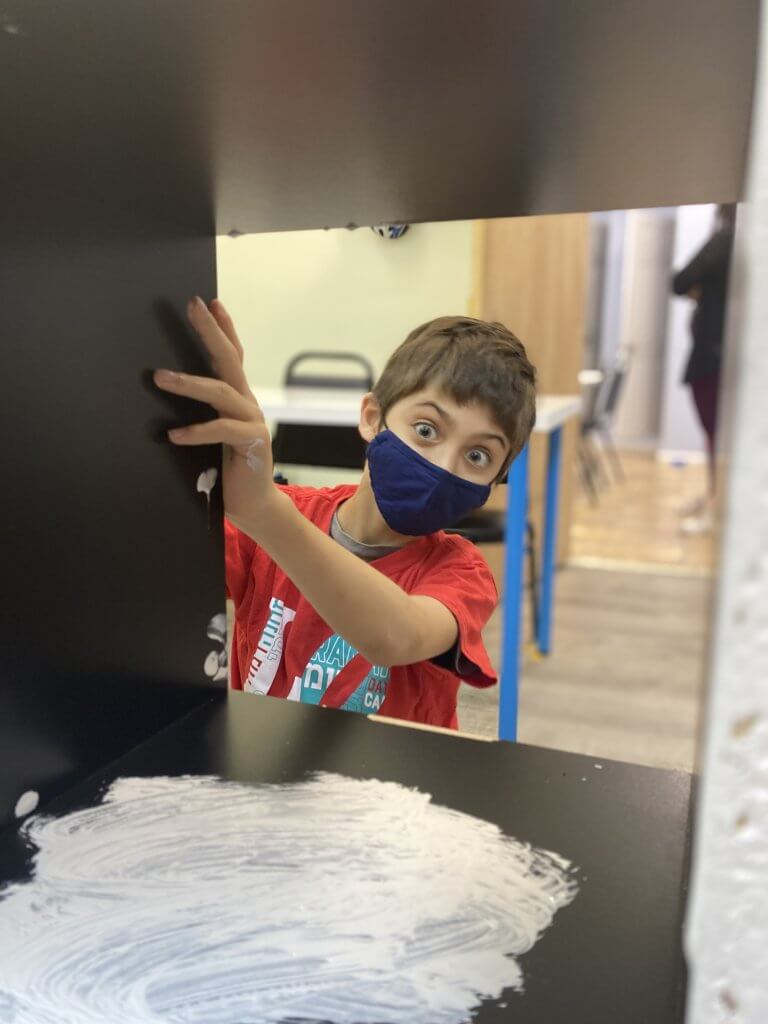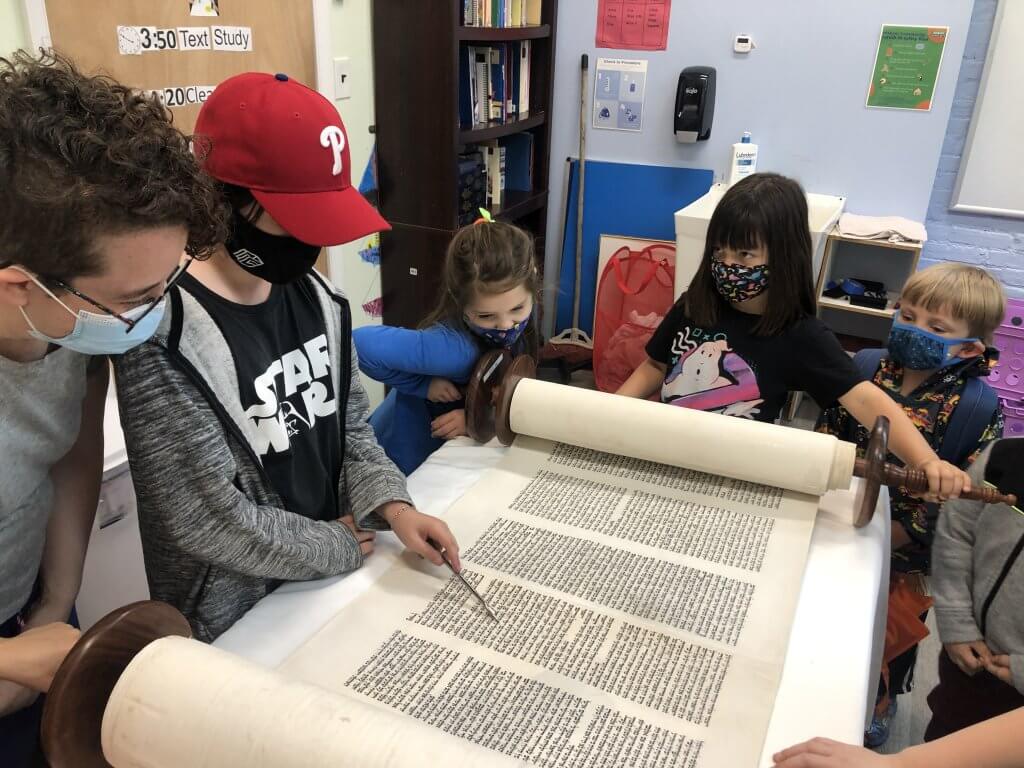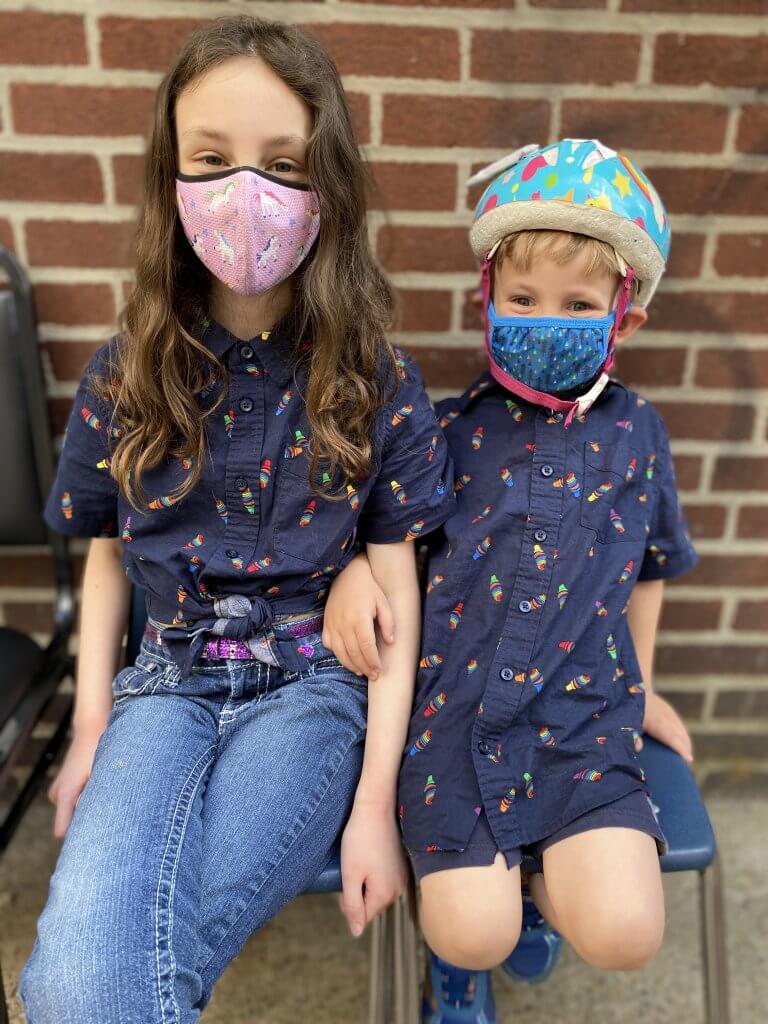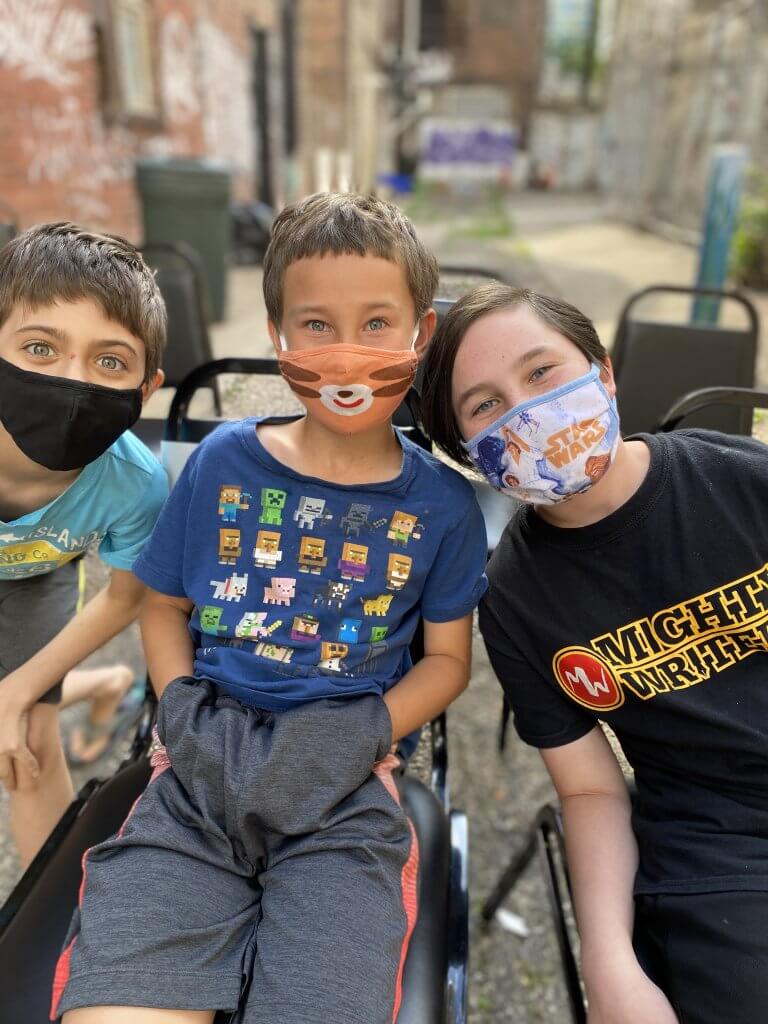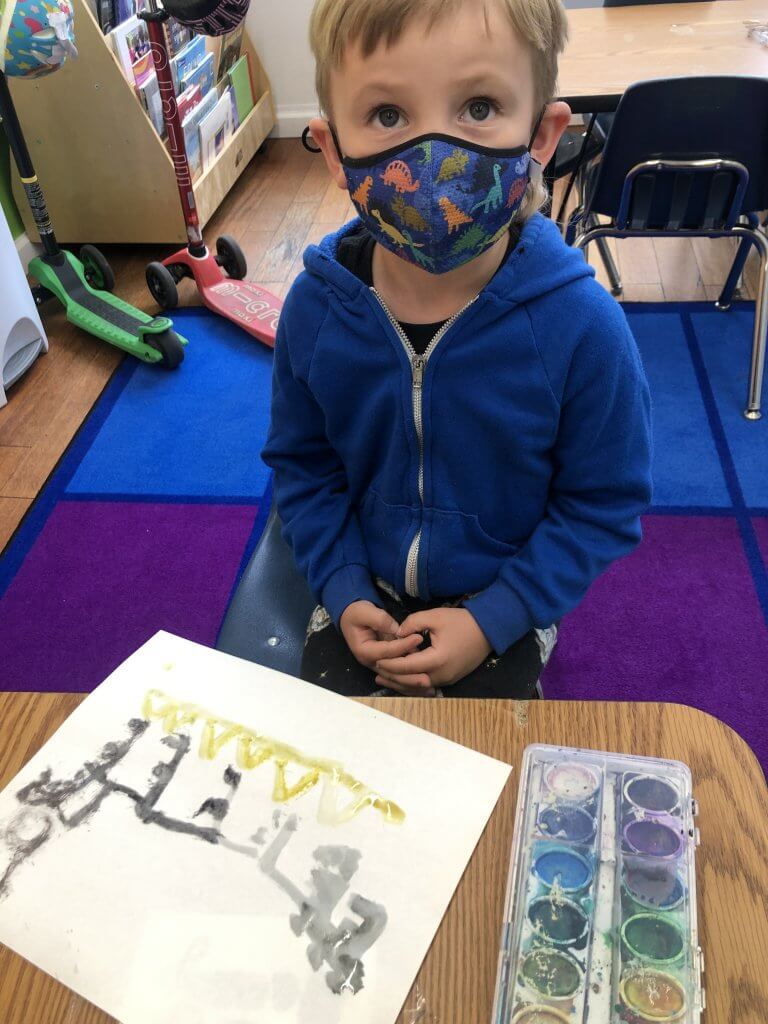We are getting into the swing of things in BMitzvah class! During Sukkot, we were ate snack and had Tefillah in the sukkah, incorporating shaking the lulav and etrog into Tefillah. That was super fun! In text study each day, our learners are asking rich questions and creating their own commentary. Everyone decorated a binder…
Makom Community News & Blog
Makom Community News & Blog
Filter by Category:
 Welcoming Sukkot in Our Sukkah!
Welcoming Sukkot in Our Sukkah!
Sukkot is here! Our sukkah is up! Makom Community is ready celebrate with our neighbors and strangers! Last week, we explored the commandment to love our neighbors and this week, we unpacked it’s equally important counterpart: to love the stranger and treat them as one of our own people (Leviticus 19:33-34). The Garinim pondered questions like: Who is a stranger?…
 Neighbors and Strangers in the Sukkah
Neighbors and Strangers in the Sukkah
This week we gathered in celebration of Sukkot and discussed pieces of the Torah related to concepts of neighbors, strangers, and welcoming. Learners shared wisdom with one another as we dug into questions which helped us unpack the relationship between ourselves and the world around us. As we sat around tables underneath the sunshine inside the Sukkah, kiddos grappled with…
 Monday, October 11th School’s Out Camp
Monday, October 11th School’s Out Camp
We are super excited for our first “School’s Out” camp day of the new year! On Monday, October 11, when schools are closed for Indigenous People’s Day/Columbus Day, we will have camp from 8:30-4:00, filled with crafts, music, learning, movement games, outdoor time, and lots of fun. We will weave in activities in honor of Indigenous People’s Day, and also…
 Love & Forgiveness: How Can We Be Better Neighbors In The New Year?
Love & Forgiveness: How Can We Be Better Neighbors In The New Year?
This week, we reflected on how the torah may guide our emotions and practiced fixing our mistakes by going over the steps on how to ask forgiveness and how to be thoughtful as we tell people about what upset us. On Monday we read this set of rules from the torah: “ You will not hate your sibling in your heart. Gently…
 High Holidays and Beyond!
High Holidays and Beyond!
As we closed our learning about Rosh Hashanah last week, we began reflecting on ideas about Yom Kippur. Although September is full of short weeks, we are packing in all kinds of creative and engaging opportunities for joy and growth. During these two weeks we have been discussing community, neighbors, how we treat one another, how we understand and rectify…
 BMitzvah Beginnings!
BMitzvah Beginnings!
BMitzvah has been off to a great start this year. I have been delighted to find the learners all know each other quite well across the grades, enjoy talking, being silly, and learning together. We have been spending snack time these first few days out on Sansom Street playing some games to get to know each other more. Our first…
 What Makes A Community?
What Makes A Community?
During this short week of Jewish Enrichment in Center City, we shared our own Rosh Hashanah celebrations and gave thought to the question: what makes up a community? Some kiddos in Garinim thought that a community was: A school or afterschool A group of people, plants, and animals A school inside of a school How do we make a community?…
 Jewish Enrichment Opens In South Philly
Jewish Enrichment Opens In South Philly
Our first week of Jewish Enrichment has come and gone and what a week it has been. We are so lucky to have this special group of students in our very first year of Jewish Enrichment at Makom Community South Philly. Thank you for being part of our community and trusting us with your kiddos! This week our youngest learners…
 Welcome Back to Jewish Enrichment in Center City!
Welcome Back to Jewish Enrichment in Center City!
Welcome back to Jewish Enrichment at Makom Community! What a fabulous (and also semi crazy) first week of learning and playing with your kiddos. We started off our week with some name games, get-to-know-you-ing, and conversations about how to keep ourselves and each other safe and happy. We also started learning about the upcoming holiday, Rosh HaShanah (Jewish New Year)….
 South Philly’s Last Week of School’s Out Camp
South Philly’s Last Week of School’s Out Camp
This week we were so thrilled to welcome you, our Makom South Philly Community, into our space for the second week of camp! We started off the week with placemaking activities. The Nitzinim examined placemaking as they considered what their space needed. Then they created an environment that met their needs including a leggo corner and a cozy Pinat Shalom…
 Science Is Cool! | Center City’s Last Week of School’s Out Camp
Science Is Cool! | Center City’s Last Week of School’s Out Camp
This past week our kiddos were dived into the fascinating world of science and explored Judaism’s connection to environment through Baal Tashchit (the commandment to not destroy). We started this week by learning what a bracha (blessing) is and why we might say a bracha? We concluded that we usually say a bracha when we are grateful, when something makes us…
 What Are We Made Of? August School’s Out Camp Center City Week 2
What Are We Made Of? August School’s Out Camp Center City Week 2
What an energetic week! This week, our campers were filled to the brim with ruach, spirit! We explored concepts such as pioneering, diversity, and culture with a variety of cooking, movement, art, and observation activities. We started the week with a tour of Israel! We then created salt dough and made 3D replicas of Israel. This week was ultra special…
 Camp Begins at Makom Community South Philly!
Camp Begins at Makom Community South Philly!
WOW! What a wonderful week of camp it’s been. This week we welcomed kids to Makom Community South Philly for the very first time! What a joy it was to consider community and pioneering with our very own community of Makom pioneers. Kiddos decided what to name the classrooms: The Rainbow Room, and The Alef-Bet Room, and came up with…
Makom @ Home Fall 2021
Last year, we wanted to bring our FABULOUS Makom Community learning to kids across the country, so we launched Makom @ Home. This year, we are offering it in an even more flexible way. Ages We will have upper and lower elementary school cohorts for kids 4-6, and 7-10 years old. If you think your child is on the border…
 Music & Movement: Week 1 of August School’s Out Camp
Music & Movement: Week 1 of August School’s Out Camp
Why is music an essential part in Jewish traditions and experiences? During our first few days of August School’s Out Camp, our learners explored this very question. In between ice breakers and movement activities, we asked our learners to help us define music, how it makes us feel, and explore how it makes us move our bodies. Led by our…
Fall 2021 COVID-19 Safety Plan
Makom Community Fall 2021 COVID-19 Safety Plan What an unimaginably challenging last year and a half we’ve had! We know more than ever before about COVID-19, and we are prepared to leverage all that learning to do everything we can to keep each other safe. We are pleased to share that all of our staff members and all of our…
Get Excited for August School’s Out Camp!
Makom Community has three, awesome, fun-filled weeks of August School’s Out camp planned for your kiddos in both Center City and South Philly! Kids ages 4-10 are invited to join us the weeks of August 9, 16, and 23 for week-long, full camp days (8:30am-5:30pm) complete with arts and crafts, cooking projects, afternoons at the playground or splash pad, singing,…
 Makom Community Jewish Placemaking Conference Schedule Overview
Makom Community Jewish Placemaking Conference Schedule Overview
Join Makom Community to prepare yourself for a fabulous 21-22 school year! You’ll get to reflect on your vision and goals for this year of teaching as we emerge from the pandemic and learn about how Makom Community’s framework for Jewish Placemaking could delight and enrich your community. You’ll gain new tools, have time to try them out, and meet…
 June Camp: A Recap
June Camp: A Recap
We just finished two fabulous weeks of June camp! We had a blast doing art projects, scavenger hunts, moving our bodies, reading books, and so much more. During our first week of camp, we focused on theatre and our Avot v’Imahot (ancestors). We played improv games, learned all about the elements of a narrative, and even wrote and performed a…
 Nitzanim Unit 4 Showcase: Holy Moments
Nitzanim Unit 4 Showcase: Holy Moments
The Nitzanim (3rd and 4th graders) presented their fourth and final showcase for the year! This unit’s big idea was holy moments, viewed through the text of Kohelet (Ecclesiastes). We focused on creating a Pinat Shalom (peace corner) for the Nitzanim classroom. We noticed that we needed a space to rest and relax, and a space to be in if…
 Adventures with the Shabbackpack
Adventures with the Shabbackpack
In pre-pandemic times, we welcomed Shabbat in what felt like the most natural way. Families would come together every Friday afternoon. We would sing songs, reflect on our week, and bring in Shabbat together. Importantly, this gave families the opportunity to truly connect with one another. Not just as parents of kids in the same class, but as valued members…
 A Time for Learning, and a Time for Reviewing
A Time for Learning, and a Time for Reviewing
Wow! The end of Unit 4 already! We can hardly believe how quickly this school year is rushing to a close. Last week we reviewed everything we learned from chapter 3 of Kohelet (Ecclesiastes) and the associated commentaries. Here’s what each kvutzah (group) did to recap. Garanim The Garinim (preK and K kiddos) had so much fun reviewing and recapping…
Makom @ Home Makes Meaning of Time
Throughout Judaism, we have many traditions that bring markers to the points throughout our year. The seasons of the year are marked by holidays and festivals, the months are marked by each Rosh Hodesh or new month, and the moments of our day are broken down to morning and evening through times of day we have the opportunity to pray….
 Taking a Holy Break with Shabbat
Taking a Holy Break with Shabbat
Jewish tradition is one that marks holiness in time. One of the clearest examples of this is Shabbat. There are a myriad of ways we could approach and unpack Shabbat. Last week, our text guided us to, first and foremost, look at Shabbat as a way of keeping track of time. What does time feel like? Time feels faster when…
 I Am as Important as the Whole World
I Am as Important as the Whole World
I am the single most important entity in the universe. Also I am as significant as a speck of dust. Jewish tradition invites us to hold both these ideas about ourselves as simultaneously true. How can we manage that? And why would we want to? Two weeks ago, the text of Kohelet (Ecclesiastes) invited us to wonder whether people were…
A Rosh Pinah Showcase to Remember
How good it is when we come together. What greater joy is there to mark a new point in this strange year than with a moment where we can come together in person for some learning? It brings a smile to every one of our cohort’s faces when they get to share what they’ve learned and created with others. …
 Summer Camp Here We Come! June 14-25 & August 9-27
Summer Camp Here We Come! June 14-25 & August 9-27
We hope you are getting ready for a fabulous summer! We’re gearing up for 5 awesome weeks of School’s Out Camp with your kiddos, two weeks in June and 3 weeks in August. Join us to write a play, create , and party! See more details below, or click here to enroll by the week. Our summer camps are weekly. …
 On the Nature of People
On the Nature of People
What even are people? Kohelet (Ecclesiastes) argues that Earthlings should stop trying to associate themselves with God and just realize that they’re only as good as animals. Both end up the same: coming from dust and returning to dust (Kohelet 3:18-20). What do you think happens after people and animals die? Nothing. We become dirt and then plants. We will…
Leadership under scrutiny: When we make mistakes.
What is the difference between someone is chosen for a role or when they take on the role themselves? We are working to understand leadership. When it comes to Beha’alotcha , our current parsha, we have ample opportunities to do so. Leadership makes mistakes, changes, and shows emotions in this parsha. Those emotions get in the way of idealized…

